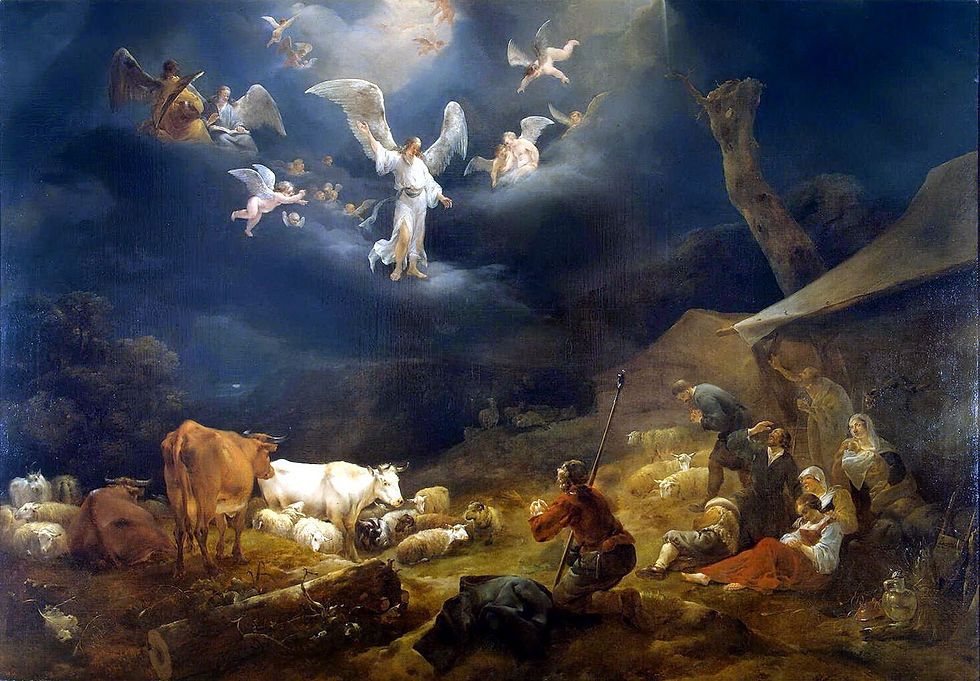Above All Else…CHOOSE to Love
- Drew M Christian

- Feb 4, 2025
- 4 min read
February 5, 2025
Whenever I officiate a wedding, I remind the couple that love is not merely a feeling—it's a choice. We must actively choose to love. There will be days, long after the excitement of courtship, the wedding, and the honeymoon have faded, when you might wake up next to your spouse and not feel particularly fond of them. Some may say they have “fallen out of love” during these moments, but that's a misconception—because love isn’t a feeling you can fall out of. It’s a deliberate action. You either choose to continue loving or choose to stop.
Couples who stay together for decades understand this. They honor their marriage covenant—the promise they made to each other—even during seasons when they don’t feel close. Often, by steadfastly keeping their commitment and choosing to love through those challenging times, couples find themselves growing closer than ever before, experiencing new depths of intimacy and connection.
In his book, The Servant, James Hunter writes:
I cannot always control how I feel about other people, but I certainly am in control of how I behave toward other people. Feelings can come and go depending upon what you ate for dinner last night! My neighbor may be difficult, and I may not like him very much, but I can still behave lovingly. I can be patient with him, honest and respectful, even though he chooses to behave poorly.
We choose to take a deep breath and be patient, helping the elderly woman in line at the grocery store. We choose to take a few extra minutes to stop, speak, and help the homeless person begging on the street corner. We choose to let go of bitterness and forgive the one who hurt us. We choose not to tell a lie and to be honest about our mistakes. We choose to separate the person
whom God loves and does not desire should perish from their behavior or sin (2 Pet. 3:9). We choose to sacrifice our own needs and wants for others. Furthermore, we are told to “outdo” one another in love (Rom. 12:8-11).
Actions come first; Feelings come later. C.S. Lewis declares, “Do not waste time bothering whether you ‘love’ your neighbor; act as if you did. As soon as we do this, we find one of the great secrets. When you are behaving as if you loved someone, you will presently come to love him.”
Jesus teaches us this in the parable of the two sons. The father asks the first to work in the vineyard. The son replies, “I will not,” but later changes his mind and goes. He doesn’t feel like doing it but decides to do it anyway. The second son says, “I will, sir,” but did not go. Jesus asks, “Which of the two did what his father wanted?” “The first,” they answer (Matt. 21:28-31). Actions, not words, count. Our actions, doing the right thing, bear fruit.
As we are obedient to God, as we draw closer to Him, God will enlarge our hearts and teach us to love like His Son, Jesus (Ps. 119:32). We may not FEEL love, affection, patience, kindness, forgiveness, but we choose to love because Jesus commands it: Jesus said, “A new command I give you; Love one another. As I have loved you, so you must love one another” (John 13:34-35).
We must look to Jesus as our example. Jesus was not only fully divine, but also fully-human. There were times Jesus was unsure He had the strength to go to the cross and fulfill His mission. There were times He was filled with fear and weariness, times He was filled with sorrow and grief. The writer of Hebrews tells us, “During the days of Jesus’ life on earth, he offered up prayers and petitions with fervent cries and tears to the one who could save him from death.”
Jesus knew that our imperfections, our sin, would keep us from a closer relationship and eternity with a perfect and holy God. Jesus understood that you and I needed someone to intercede on our behalf. Max Lucado writes, “Since Jesus couldn't bear the thought of eternity without you, he chose the nails.”
Jesus chose love over fear and weariness. Jesus chose love over sorrow and grief. Jesus chose to love us and “…humbled himself and became obedient to death-- even death on a cross!” (Philippians 2:8). When we truly grasp God’s incredible love for us, our response is to love—not merely out of duty, but out of gratitude. It’s the realization that, despite our flaws and failures, “He first loved us” (1 John 4:19).
What wondrous love is this
That caused the Lord of bliss
To bear the dreadful curse for my soul,
For my soul, to bear the dreadful curse for my soul.
What wondrous love is this,
O my soul, O my soul!
What wondrous love is this, O my soul!
Let us give thanks! Let us choose to love!



Comments